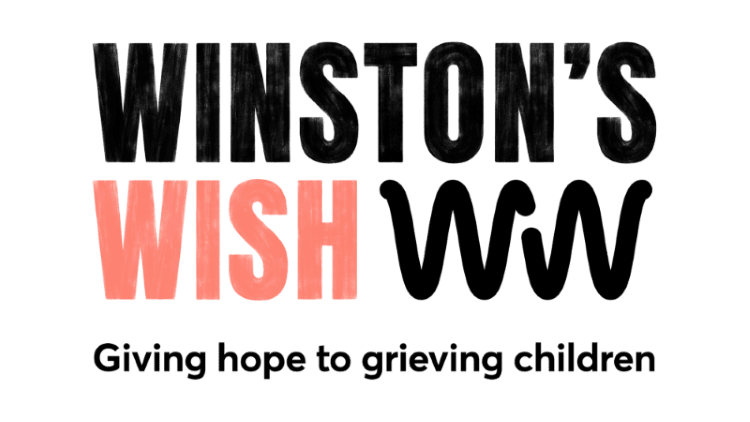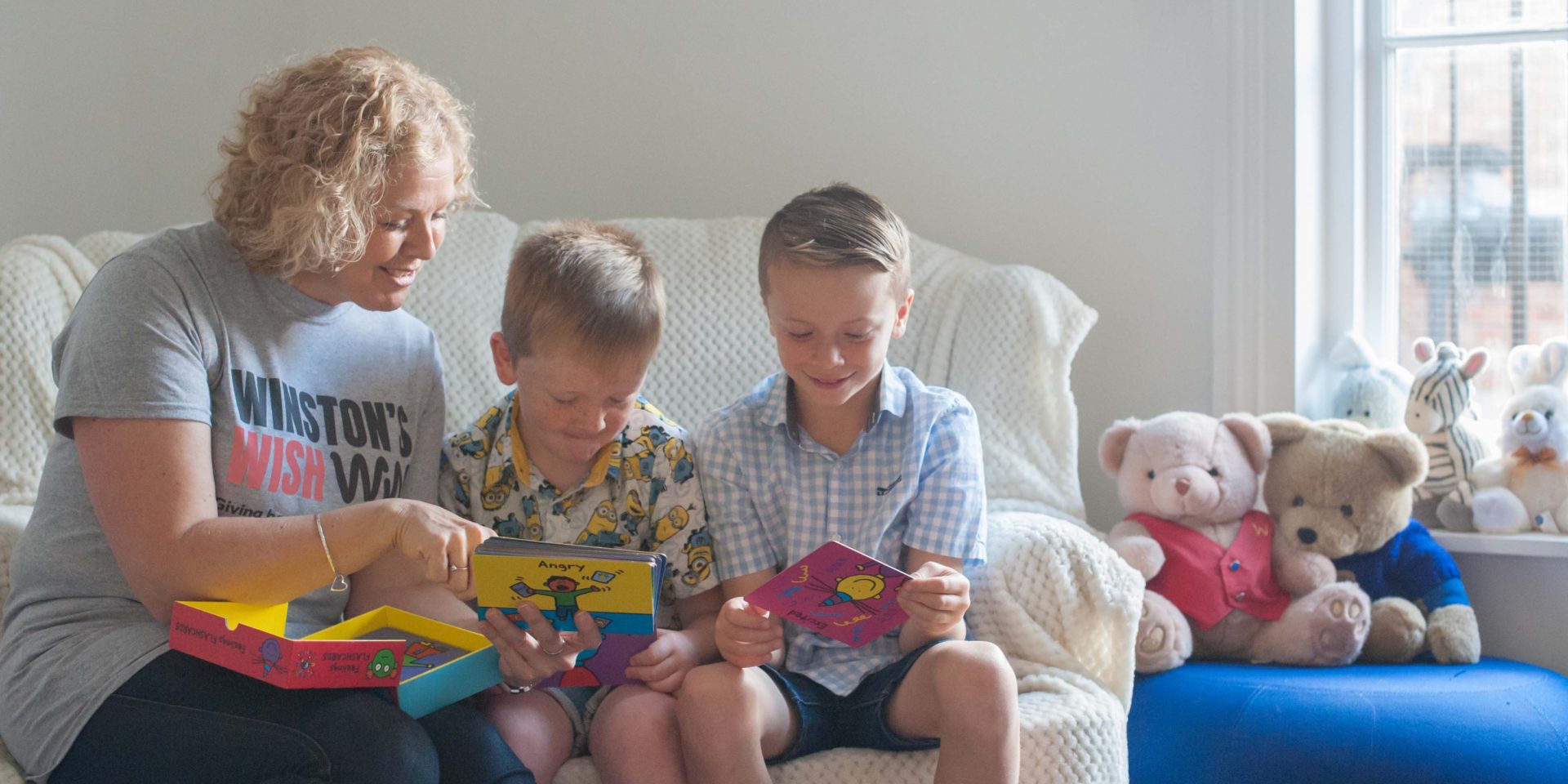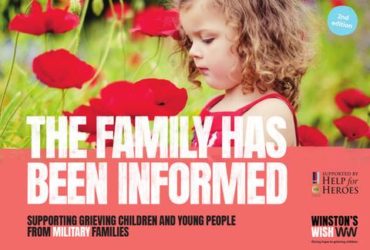There is no set way to tell a child something as difficult as the fact that someone they know has died or been killed. Many adults find it difficult to talk about death with children and it can be tempting to try to shield them from pain. However, it is really important that children have a clear understanding that the person has died. Nothing you say will make it worse – the worst has already happened.
It is also a natural reaction to want to spare children from learning how the death happened. However, when there has been a death in service, the media is likely to be involved and the story will probably become public knowledge. It is much better for children and young people to hear the news from someone they trust in a calm and accurate way rather than from rumour or from another child in the playground.
It is best for a parent or carer to tell children this difficult news but if you don’t feel able to say the words, try to make sure that you are with the child when someone else tells them what has happened.
Be honest and consistent
It can help even very young children to have a simple story they can use to re-tell and slowly make sense of what happened. Use words they understand. Always ask them what they think about what you have said and make sure they have actually understood. For younger children, don’t give too much information at a time – small chunks will be easier to understand.
Young children may not need to know the exact details of how someone has died but they will need to return to this as their understanding develops and they seek more information as they mature.
Finding the right words
One helpful way of thinking about telling children and young people what has happened is to think of giving information in stages like building a jigsaw from pieces. These stages may happen in the space of minutes, hours, days, weeks or even months and years. The pace between stages is led by the child’s needs and their ability to understand. This is in turn affected by their age and developmental understanding. The pace will also be affected by the situation, for example, your child may find out what has happened from other sources or from older members of the family.
1. Explain that the person has died
This will probably be the hardest thing you ever have to say. The most important thing is to say, simply, gently and clearly, that the person has died. As adults, we can find the words ‘death’ and ‘died’ very hard and blunt to say: but for children, these words are simply describing a circumstance that may be new to them. What is important is to explain things in language children can understand. Children, especially younger ones, can be very confused by other expressions such as ‘lost’ or ‘gone’.
2. Give simple details about the death
This is an opportunity to explain where and how the person died and allows you to tell part of the story without going into lots of detail. For example: “What seems to have happened is that there was a big explosion right beside where Daddy was standing and he was hurt so badly that he died.”. It is important to check out with the child that they understand what has been said, especially if you have used any words that might be new to them. Ask them if they would like to know more, even though it might be upsetting if children are not given information, they tend to fill in the gaps themselves and possibly jump to conclusions.
3. Explain the death in context to their life
This is the opportunity for some immediate reassurance and comfort, for example: “Even though this is the saddest thing to ever happen, we have got each other and we will be OK”. It’s helpful for children to feel informed about what will happen next, for example, if the person’s body is being returned from overseas or about arrangements for the funeral.
4. Providing a more detailed description of how the person died
What you say and how you say it will depend on your knowledge and understanding of your child and their developmental age and also on the nature of what has happened. Most people worry about telling children about how someone has died, but if you say what has happened simply and factually, children and young people will be able to piece things together and start to make sense of what has happened. The likelihood is that children will want to know more about what has happened, talking about how someone died will often open up more questions, though not always straight away. Children may ask the same question a number of times over the course of days, months or years as they process the information and check that they have remembered things correctly.
5. Explaining what will happen next
Older children will seek reassurance about the next steps facing the family. They will be aware that this death may mean significant changes in their lives: leaving their home, for example, or changing schools. Younger children will also appreciate some reassurance that even if there are major changes ahead, the family will come through. As far as possible, involve children in conversations about the future: they might not be able to choose what happens but they will feel less as though everything is out of their control.
This all takes time. It needs to be handled with care, giving children the chance to say what they are feeling. You may want to ask your child if they would like to know more details and then be guided by their response. If a child says they do not want to hear more just now, they need to know they can always come back to you for more information when they are ready. Then again, you may feel your child cannot handle any more information at the moment. It is then important for you to let them know that you will tell them more later – and then be sure to do this.
If a child asks a question about what has happened, they are usually ready to hear the answer. However, supportive adults may need to anticipate the questions and anxieties that a child may have in their head and take responsibility for initiating conversations. The practical activities section later in this booklet provides some ideas that might help.
A child or young person may not ask a question, talk about the person who has died or express their emotions because they are concerned about upsetting you. Without these opportunities, however, their anxieties and emotions may come out in other ways – behavioural difficulties, withdrawal or risk-taking activities.
Where to get support
The Winston’s Wish Freephone National Helpline is continuing to operate as normal. If you need advice on explaining a death in service to children and young people, you can call us on 08088 020 021 (9.00am-5.00pm, Monday-Friday), email us on ask@winstonswish.org or use our online chat.
Our Winston’s Wish Crisis Messenger is available 24/7 for urgent support in a crisis. Text WW to 85258.
Other resources you might find helpful
Support for military families
Information and guidance on how to support and talk to children about a death and coping with grief and what support Winston’s Wish can offer bereaved military families.
The Family Has Been Informed
Our specialist book offers practical guidance for military families after someone has died. Includes activities and resources to help adults support grieving children and young people.




